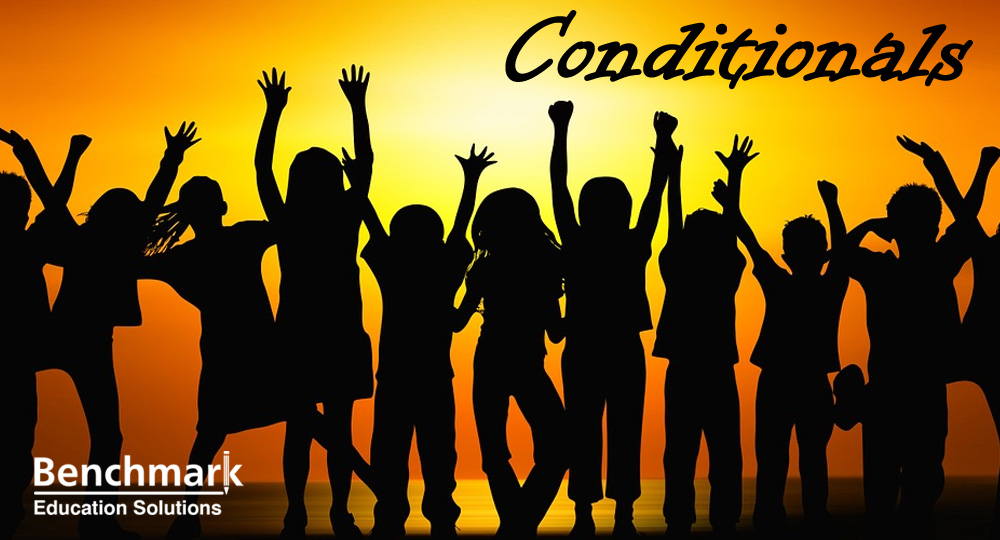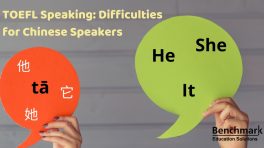
If you knew how to use conditionals, you would have a better chance of TOEFL success!
The above sentence is not only true, but it’s also a conditional. These are parts of English grammar that you should be familiar with, even if you don’t know exactly how to use them. They are super common and you probably hear them every day, but maybe you don’t feel particularly confident about making them yourself. Or maybe you do… but you don’t know the precise rules.
If you want to ace the TOEFL and get a really great score, then you’re going to have to get good at using conditionals, and that means you should definitely pay attention to this article! Today, I’ll be showing you how to use each kind of conditional – yes, there is more than one!
What are conditionals?
Basically, conditionals are a type of sentence used in English to speculate about something. “Speculate” means to talk about something that hasn’t happened and so the results are imaginary. There are many situations in the TOEFL exam (and other English tests) that would allow you to use this structure because they are asking about hypothetical situations in the past and future. Therefore, this is a very useful grammatical structure to know for the exam.
There are five different kinds of conditional, and they are known as zero conditionals; first, second, and third conditionals; and mixed conditionals. I will give an overview in the following table, before explaining each in a little more depth.
| Type of Conditional | Why is it used? | If Clause Tense | Main Clause Tense |
|---|---|---|---|
| Zero | General truth | Present Simple | Present Simple |
| First | Possible condition and likely result | Present Simple | Future Simple |
| Second | Hypothetical condition and likely result | Past Simple | Would + Infinitive Verb |
| Third | Something that didn’t happen in the past, and future likely result | Past Perfect | Would + Past Perfect |
| Mixed | Something that didn’t happen in the past, and present possible result | Past Perfect | Would + Simple or Perfect |
Zero Conditional
The zero conditional is undoubtedly the easiest of all the conditionals to use because it can only exist in the present tense and requires the easiest grammar. We use the following structure to construct it:
IF + PRESENT SIMPLE, + (THEN) + PRESENT SIMPLE
This is used for general truths. In other words, the parts of the sentence both refer to things that are true now or always. It can be seen as a form of cause and effect or just a relationship between two closely linked ideas. If one thing happens, then another thing happens. Here are some examples:
- If water is heated to 100 degrees, (then) it boils.
- If it is windy, (then) the trees bend.
You can see that we can either include or omit the word “then.” In the zero conditional, it is possible to replace “if” with “when” and there is no change in meaning:
- When water is heated to 100 degrees, (then) it boils.
- When it is windy, (then) the trees bend.
First Conditional
The zero conditional looks at general truths – in other words, things that are almost certainly true. The first conditional is similar in that the things described are likely to be true, but they are also likely to be single events rather than things that are always a certain way. We form the first conditional like this:
IF + PRESENT SIMPLE, + (THEN) + FUTURE SIMPLE
The future simple is formed with “will,” which sets this conditional form apart from the others. We can see that it begins the same as the zero conditional, but speculates on what will happen in future:
- If students are late for class, (then) they will be punished by their teacher.
- If it is very windy, (then) the bridge will be
Again, you can see that it is possible to include “then” after the comma between the two clauses. However, it is equally possible to omit this word and the meaning will remain the same. Typically, in formal writing we keep “then” while in informal speech it is more likely to be dropped.
It is important to note than none of the things mentioned in those clauses really happened, and so they are only being used to talk about an unlikely possible future scenario. This may seem rare, but actually it can be useful for TOEFL because you might have to talk about issues concerning social or global future. For example, you may say something like:
- If people don’tcurb their consumption habits, (then) we will face environmental collapse.
Second Conditional
While the previous two conditionals were quite simple, from this one onwards they begin to get more difficult. Here, we are talking about things that are possible but quite unlikely. The situations presented in this conditional are not real and sometimes may even be unrealistic. The “if” clause will present the hypothetical situation and the main clause will give an expected result, should the situation arise.
It is formed like this:
IF + PAST SIMPLE, + (THEN) + WOULD + INFINITIVE VERB
We can see how it could be used in the following examples:
- If I was president, (then) I would give everyone three days off work each week.
- If I won the lottery, (then) I would donate most of my money to protecting the rainforest.
Third Conditional
This is another complicated conditional because we use it to talk about past events, but speculate on something that could have happened but didn’t. The ideas that are contained within these sentences are the opposite of what actually occurred in reality. These clauses are quite useful for expressing complex ideas about time due to their specific use.
Look at the following example:
- If I had studied harder, (then) I would have passed my French test.
Did she study hard? No.
Did she pass her French test? No.
As you can see, the ideas expressed are absolutely the opposite of what really happened. As such, we are posing an alternative version of reality with this sort of sentence.
The structure that we use is:
IF + PAST PERFECT, + (THEN) + WOULD + PRESENT PERFECT
Here are two more TOEFL examples featuring this conditional:
- If doctors had warned people earlier, (then) fewer children would have died.
- If university fees had been lower in the eighties, (then) more people would have gotten
Mixed Conditional
Finally, we come to the mixed conditional. As its name suggests, it is a mix of tenses and types. This conditional looks at an event in the past, which, as with the third conditional, is altered to something that never happened. Then we look at the present to see a possible alternative outcome.
Let’s explore this through an example:
- If I had taken the exam last week, (then) I would have my results by now.
Did he take the exam last week? No.
Does he have his results now? No.
As with the third conditional, the truth is the opposite of what appears to be expressed in these two clauses. The “if” clause poses an imaginary past situation and the main clause tells us what would be true now if that had really occurred.
It is formed like this:
IF + PAST PERFECT, + (THEN) + WOULD + PRESENT SIMPLE OR PERFECT
Although this can be a tricky grammatical structure to use, there is definitely scope for adapting it to your exam requirements. In the TOEFL, you might say something like this:
- If the government hadn’t given tax breaks to new businesses, (then) there wouldn’t have been so many start-ups in the last ten years.
- If companies had invested more in sustainable energy, (then) we would be free from dependence on oil already.
Conclusion
Using conditionals sometimes seems daunting because of the complexity behind the ideas, but actually there are only a few rules to remember and it is not that difficult to form the grammar to make them. With a little effort, you can master all these conditionals and dazzle the examiners with your mastery over descriptions of time.
If you are having trouble or doubt your ability with conditionals, try our TOEFL writing correction service as a way to identify your strengths and weaknesses.







